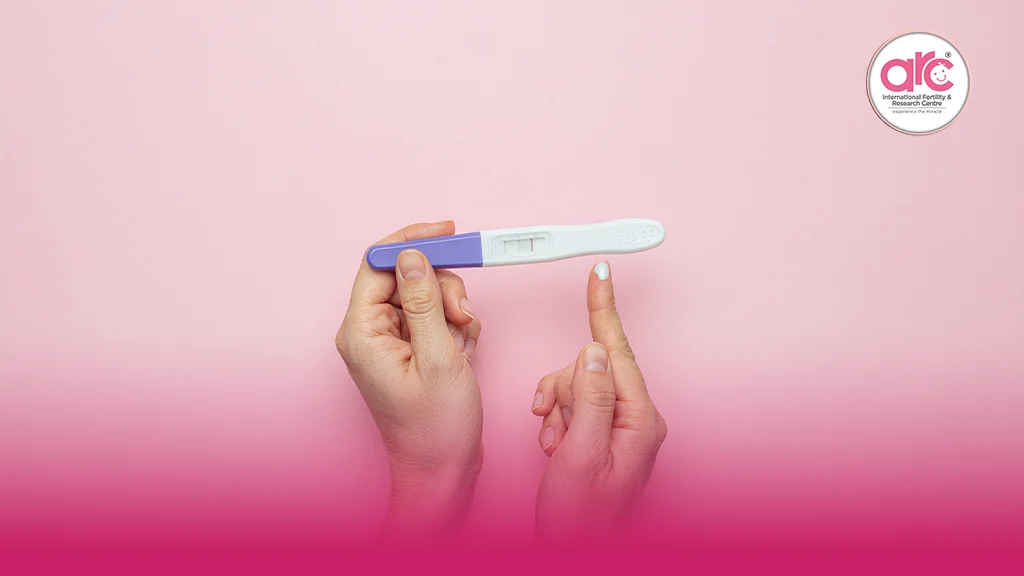Overview
You notice a white discharge one morning.
It wasn’t there before, and suddenly you start to wonder — is this normal?
In most cases, yes.
It’s one of the body’s earliest responses to pregnancy.
And it’s completely natural.
As a trusted Fertility Hospital in Chennai, we see many women come in with this concern. The pattern is almost always the same — a sudden increase in vaginal discharge during the first few weeks after conception. Let’s understand why it happens and when to pay attention.
What Exactly Is It?
That discharge has a name — leukorrhea.
It’s not an infection or something to be removed. It’s a fluid made by the cervix and vaginal walls.
It carries away dead cells, maintains pH balance, and keeps the vagina clean.
During pregnancy, estrogen levels rise sharply.
This hormone makes the glands in your cervix produce more fluid. That’s what you’re noticing.
So if you see a thin, milky, or white discharge — with mild or no smell — it’s your body adjusting to pregnancy.
Why It Increases in Early Pregnancy
Your hormones are shifting fast in the first trimester.
Blood flow increases to the pelvic region.
The cervix starts forming a mucus plug — a natural barrier that protects the uterus from infection.
All this needs lubrication. That’s why the discharge becomes more frequent and visible.
It’s the body’s way of saying, “I’m preparing to protect.”
What Normal Looks and Feels Like
Here’s how you can identify healthy discharge:
- Colour: White or slightly cloudy
- Texture: Smooth or creamy, not lumpy
- Odour: Mild or none
- Sensation: No itching or burning
You may see more discharge after walking, exercising, or intercourse. That’s fine — blood flow increases with movement, so the glands work a bit harder.
If it fits this pattern, you don’t need to worry or use medication.
When It’s Not Normal
There are times when discharge changes and needs attention.
Notice the difference — your body gives clear signals.
Call your doctor if you see:
- Yellow, green, or grey discharge
- A strong or fishy smell
- Burning, pain, or itching
- Thick, curd-like discharge (often yeast infection)
- Discharge mixed with blood not linked to implantation
These symptoms can point to bacterial vaginosis, yeast infection, or other infections. All are treatable, but early detection matters.
What to Do if It Changes
Step one — don’t panic.
Step two — don’t try to treat it yourself.
Avoid douching, sprays, or scented wipes. These disturb your body’s natural bacteria and make infections worse.
Instead, schedule a simple check-up.
As a Best Fertility Hospital in Chennai, at ARC we usually do a quick examination, sometimes a swab test, and identify the cause within minutes.
If infection is confirmed, we prescribe medication that’s safe during pregnancy.
No complex tests, no unnecessary worry.
Staying Comfortable
You can’t stop discharge — and you shouldn’t. But you can stay comfortable with small daily habits.
- Wear cotton underwear that lets your skin breathe.
- Change liners often if you use them.
- Avoid tight synthetic clothing.
- Keep the area clean and dry with mild, unscented soap.
- Drink enough water. Dehydration thickens discharge and increases discomfort.
These are simple but effective steps to prevent irritation or odour.
What If You’re Under Fertility Treatment?
If you’ve conceived through fertility treatment — IVF, IUI, or medication-assisted cycles — discharge may increase slightly. Hormones used in treatment stimulate the same glands that cause leukorrhea.
It’s harmless unless you see colour changes or discomfort.
If your partner has low sperm count, or if you’re using hormonal support, your doctor may monitor discharge as part of your follow-up visits.
Just mention any change during your routine check — even small details help us track hormonal balance.
When to Call Immediately
- Some cases need quick attention:
- Discharge mixed with bright red blood
- Strong cramps or lower abdominal pain
- Fever or chills
- Watery discharge (possible amniotic fluid leak)
If any of these occur, contact your doctor right away. Early response prevents complications.
If you’re unsure what to ask, use our simple guide — 10 questions to ask during your first consultation — to help structure your discussion.
The Takeaway
White discharge in early pregnancy is common, healthy, and protective.
It keeps the birth canal safe, maintains bacterial balance, and supports the formation of the cervical plug.
You only need to act when it changes colour, smell, or texture, or when you feel discomfort.
Simple hygiene, hydration, and regular follow-ups are all that’s required.
At ARC Fertility Hospital in Chennai, we focus on helping every woman understand her body clearly — not just treating symptoms but explaining what they mean.
Because confidence in pregnancy starts with knowledge.
ARC Fertility Hospital in Chennai — guiding women through every stage of conception and pregnancy with clarity and care.




